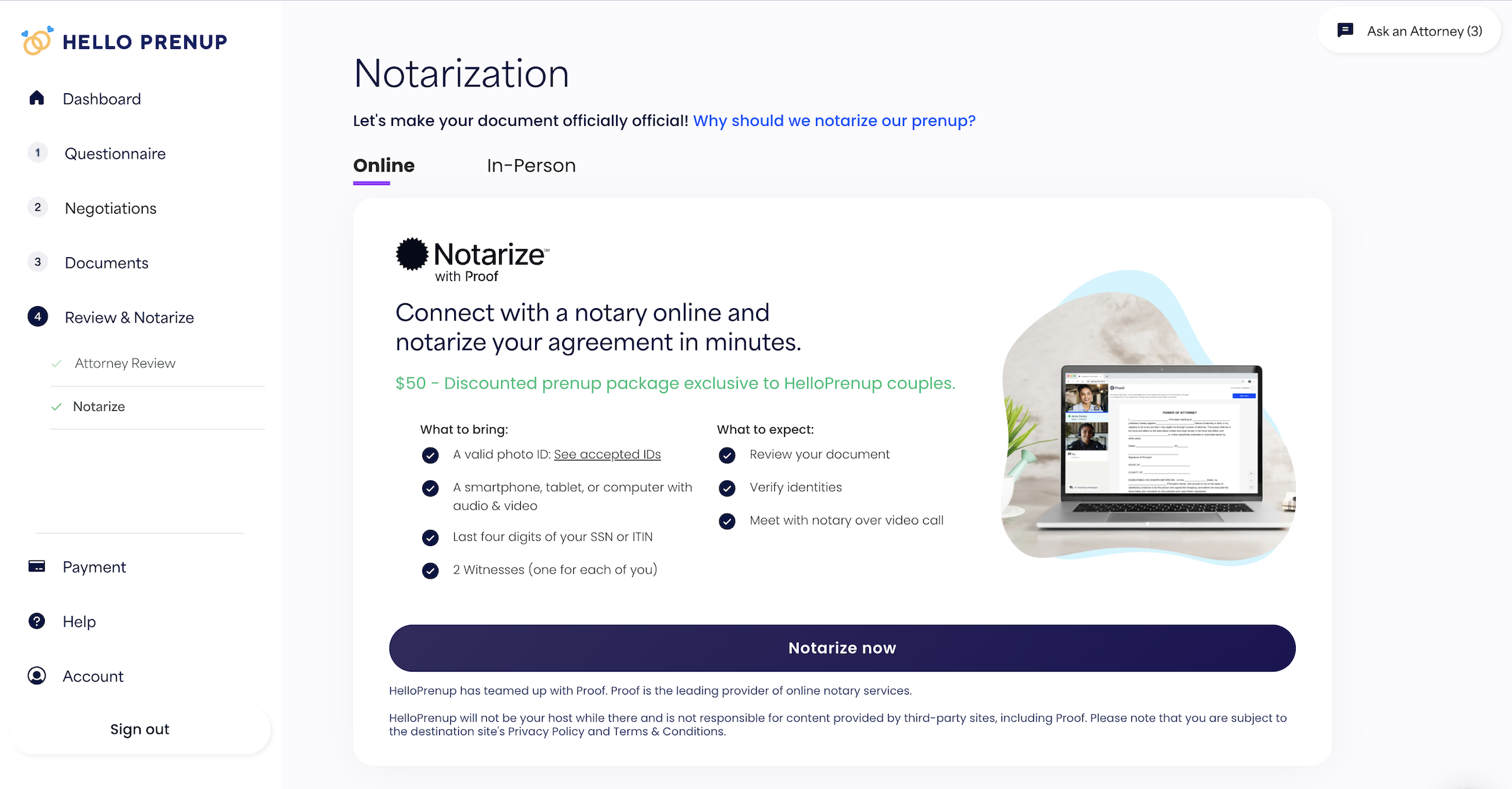Oregon Prenuptial Agreement
Congratulations on your future marriage in the beautiful state of Oregon! Whether you’re opting for a hipster wedding in Portland or a crunchy granola wedding in Bend, don’t forget to get that prenup squared away. Here is some helpful information to get started.
Oregon Prenuptial Agreements
The Oregon courts refer to a prenuptial agreement as a “premarital agreement.” An antenuptial agreement, prenuptial agreement, and premarital agreement are synonymous. They all mean a legal contract drafted between two parties before getting married. A premarital agreement is only valid after the marriage takes place. The Oregon premarital agreement statutes and case law outline the rules and requirements for a valid agreement. The terms of an Oregon premarital agreement may include alimony modifications, property division, retirement accounts, and more. On the other hand, a prenup in Oregon cannot limit or contract around child support, child custody, or matters violating public policy.
What to consider for an Oregon Prenup
For an Oregon premarital agreement to be considered valid, you should consider the following:
- Must be in writing
- Must be executed voluntarily
- Must not be unconscionable
- Must be signed by both parties (HelloPrenup recommends initialing each page)
- Full disclosure of assets and income *Do not skimp on this*
- It is highly recommended that each party hires their own attorney
What to exclude from your Oregon prenup
To ensure that your prenup comports with Oregon law, you may want to avoid…
- Terms involving child support
- Terms involving child custody
- Unconscionable terms
- Terms that violate public policy
- Terms eliminating or modifying spousal maintenance (a.k.a., alimony) that causes one spouse extreme hardship
The agreement must also be executed voluntarily and freely. This means that either party had a meaningful choice whether to sign the agreement and they were not physically or psychologically threatened.
HelloPrenup does not offer legal advice or representation and is not a law firm or a substitute for the advice or services of an attorney or law firm. The information provided on this site is not legal advice. If you are looking for legal advice for your specific situation, you should contact a licensed attorney in your state.
It’s all in the details: A lesson on disclosure
Husband and Wife were married in 1989. The day before they left for their Vegas wedding, Husband insisted that Wife sign off on a prenup that his attorney drafted. The prenup stated that they each had no right to the other’s separate property, and neither of them was allowed to request alimony in the event of divorce. Attached to the prenup was a list of Husband’s major assets with no dollar value next to them. Given that she had one day’s notice of this prenup, Wife was also unable to get her attorney to review the prenup. Wife insisted she didn’t want to sign the prenup, but Husband urged her to, reassuring her that he loved her, and the wedding was already planned. Husband also assured her that his attorney would review it for her (this is a major red flag because attorneys cannot represent two opposing parties). She reluctantly signed.
The question for the court is: Is this prenup enforceable? Wife argues that it is not enforceable because she did not sign it voluntarily. On the question of voluntariness, the court said that she did not sign it voluntarily because she did not have a reasonable opportunity to review the agreement, she did not have her own attorney. She wasn’t aware of the nature of his property. Husband presented the prenup to her one day before they left for their wedding; this didn’t give her reasonable time to review the agreement. Wife also did not have a chance to have her own attorney review it. How could she? She only had one day to figure everything out. Finally, the major assets listed on the prenup did not have monetary values next to them, leaving Wife in the dark regarding what rights she was waiving.
The lesson to learn from this case is:
- Disclose, disclose, disclose, and don’t forget to write your assets with the monetary value next to them.
- Present a prenup more than a day before you’re supposed to leave for your wedding.
- Get your own attorneys!
One attorney cannot represent both of you because one attorney can’t protect the rights of opposing parties.
In re Marriage of Rudder, 217 P.3d 183 (Or.App. 2009)
Another lesson on asset disclosure
As you’ve learned, asset disclosure is an important aspect of creating a valid prenup in most states, including Oregon. Asset disclosure describes the property you own (retirement accounts, real estate, bank accounts, etc.) and the value of each. The purpose of requiring asset disclosure in a prenuptial agreement is to make both spouses aware of the amount of property that the prenup will affect. In other words, you need to know just what you are giving up. A case from the 1980s further highlights how Oregon courts treat asset disclosure on prenups.
Husband and Wife executed a prenup that did not specify the extent of Husband’s assets. However, Wife was employed by Husband’s business, which was his only substantial asset. She handled the bookkeeping and payroll and oversaw ten business checking accounts. Did Wife’s mere knowledge of Husband’s sole asset alleviate the need for asset disclosure? This court said yes because the sole reason for requiring asset disclosure is to give the other person enough awareness of the property to understand what they are giving up. Wife’s employment provided her with an adequate understanding of Husband’s assets to understand what she was giving up.
Moral of the story? Always disclose, but even if you don’t, you may still be covered if you show that your spouse had an adequate understanding of your property.
Matter of Marriage of Knoll, 671 P.2d 718 (Or.App. 1983)
Statutes & terms to understand for an Oregon Prenup
*Before diving into the deep end, let’s go through some terminology and phrases that will be used in your prenup – that way, you don’t go cross-eyed trying to decipher the legal jargon and miss something.
Divorce Statute
Official term for divorce in Oregon: Dissolution of marriage
A divorce occurs when two people, who have been legally married, begin the court process to end the marriage. In Oregon, courts refer to a divorce as a “dissolution of marriage.” Oregon is not a fault state, meaning that you cannot claim that your spouse “did something wrong” as the basis for divorce. You can only claim that there are “irreconcilable differences.”
>>For the fine print on dissolution of marriage, review Oregon Revised Statutes 107.025
How to end a marriage in Oregon
There are two ways to end a marriage in Oregon: annulment or dissolution of marriage. An annulment ends a marriage based on the idea that it was void from the start (think: bigamy, cousins). You may also obtain a legal separation, but a legal separation does not technically end a marriage. Legal separation allows for court orders, such as maintenance, child custody, and child support, but you are still married.
Residency requirements
Each state has residency requirements that must be fulfilled before you can divorce in that state. In Oregon, these are the residency requirements:
- Either spouse must be a resident of Oregon for at least six consecutive months prior to filing for dissolution of marriage.
Separate Property
Official term for property not considered part of the marital estate
Separate property means property that does not get divided in the divorce. In Oregon, courts consider gifts, inheritances, property acquired before the marriage, or property originating from these item as separate property, thus not subject to division. If this is not to your liking, you will need to specify it in a legal document otherwise (such as in a prenuptial or postnuptial agreement).
>>For more fine print, review Oregon Revised Statute Section 107.105
Alimony
Official term for Alimony in Oregon: Spousal support
Spousal support, maintenance, and alimony all mean the same thing: financial support ordered by the court to be paid by one spouse to the other. In Oregon, alimony is known as spousal support. An Oregon court may grant spousal support for any of the following situations:
- To allow one spouse to receive education or training to support themselves eventually.
- To compensate one spouse for making a significate contribution to the other spouse’s education or training.
- To maintain the standard of living similar to what the spouse had during the marriage (this is generally only ordered for spouses married for a long time).
You may include provisions in your prenup limiting or eliminating spousal support.
>>For more fine print, review Oregon Revised Statute Section 107.105
Oregon case law on modifying or eliminating spousal support in your prenup
Husband and Wife were married in 1987. Before the wedding, they executed a prenup that said, “what’s yours is yours, and what’s mine is mine,” and they also both waived any right to alimony (i.e., spousal support).
They were married for over a decade before filing for divorce. In the divorce proceedings, Wife sought to strike the provision about spousal support. Of course, Husband wanted the opposite; he wanted to uphold the provision that prevented her from receiving spousal support from him. Wife argued that she should be entitled to spousal support because the state has an interest in supporting its citizens and spouses are responsible for supporting each other.
The court disagreed with Wife. While she is correct (that the state is interested in supporting its citizens and prenups waiving spousal support that would deprive a spouse of support that they cannot otherwise secure, it should be invalid), this is not the case for Wife. Wife receives social security and monthly income from her retirement accounts. She also lives rent-free. With all these factors considered, she can secure support for herself without alimony. Thus, the prenup provision eliminating the right to spousal support is valid.
Lesson learned: courts want to uphold your agreement modifying or eliminating spousal support. The only circumstance in which they will not uphold your prenup that limits or eliminates spousal support is if that will cause the spouse to have no support at all, and they will need to seek support from the state.
In re Marriage of Bridge, 998 P.2d 780 (Or.App. 2000)
Get your prenup notarized online with our exclusive partnership with Proof (formerly Notarize.com)
Include OR notarization with your prenup for just $50:
Now you can create your prenuptial agreement, collaborate on terms with your partner & optional attorneys, then notarize your prenup—all from your couch. The only thing we can’t do? Get married for you.

If you purchase Attorney Representation with your prenup, Notarization is included.
- Finalize your prenup with HelloPrenup
- Connect with Proof (formerly Notarize.com)
- Virtually connect with an online prenup notary
- E-Sign your prenup with notary
- Download & save your notarized document
- Store your notarized prenup securely within your HelloPrenup account
Recent Articles
Can You Get Married Online?
You order takeout, stream your favorite shows, and maybe even shop for groceries online these days. But what about...
What Are The 7 Principles For Making Marriage Work? Insights From a Psychologist
What makes a marriage work? Everyone has their opinions and thoughts, and there are many different modalities in...
I Have A Secret Credit Card… Now What? Step-by-Step Guide To Navigating This Situation
So, you have a secret credit card. Maybe getting it was a spontaneous decision - you saw a special promotion offering...
Ready to start your Oregon Prenup?
Just sign-up, sign-in, and print.
No commitment necessary.
(Not speaking about your marriage – commitment is absolutely necessary there).


